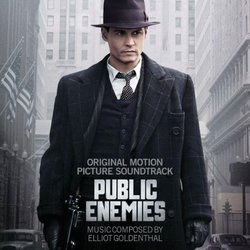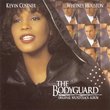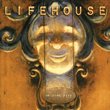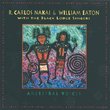| All Artists: Elliot Goldenthal Title: Public Enemies Members Wishing: 3 Total Copies: 0 Label: Decca Release Date: 6/30/2009 Album Type: Soundtrack Genres: Blues, Jazz, Pop, Soundtracks Styles: Contemporary Blues, Slide Guitar, Vocal Jazz, Vocal Pop Number of Discs: 1 SwapaCD Credits: 1 UPCs: 602527090108, 0602527115894 |
Search - Elliot Goldenthal :: Public Enemies
 | Elliot Goldenthal Public Enemies Genres: Blues, Jazz, Pop, Soundtracks
Starring JOHNNY DEPP as John Dillinger & Score By Elliot Goldenthal — Soundtrack features "Bye, Bye Blackbird" performed by DIANA KRALL In the action-thriller Public Enemies, acclaimed filmmaker Michael Mann directs Jo... more » |
Larger Image |
CD DetailsSynopsis
Album Description Starring JOHNNY DEPP as John Dillinger & Score By Elliot Goldenthal Soundtrack features "Bye, Bye Blackbird" performed by DIANA KRALL In the action-thriller Public Enemies, acclaimed filmmaker Michael Mann directs Johnny Depp, Christian Bale and Academy Award® winner Marion Cotillard in the story of legendary Depression-era outlaw John Dillinger (Depp) -- the charismatic bank robber whose lightning raids made him the number one target of J. Edgar Hoover's fledgling FBI and its top agent, Melvin Purvis (Bale), and a folk hero to much of the downtrodden public. Soundtrack includes six tracks by Academy and Golden Globe Award winning composer Elliot Goldenthal and 8 interpolations of blues, jazz and standards. Elliot Goldenthal's work includes such film scores as Aliens 3, Batman Forever and the Academy Award winning Frida. Highlight of the soundtrack is a a newly recorded version of the standard "Bye, Bye, Blackbird" sung by the incomparable Diana Krall. Other interpolations are by contemporary bluesman Otis Taylor. Music Tracks include: "Bye Bye Blackbird" - performed by DIANA KRALL "Dark Was The Night, Cold Was The Ground" - performed by Blind Willie Johnson "Love Me Or Leave Me," and "The Man I Love" - performed by Billie Holiday Similarly Requested CDs
|
CD ReviewsAnother well-chosen soundtrack/score by Michael Mann SteppingRZA | USA | 07/05/2009 (4 out of 5 stars) "For those not familiar with soundtracks/scores for Michael Mann movies, Mann almost always chooses music based on how well they serve the story and the imagery on the screen. The songs he chooses almost always convey great mood. You won't find a bunch of corporate music samplers designed to sell units, as you do on most so-called soundtracks -- those type of albums are designed to attract consumers with big name acts, and throw in some lesser-known groups, giving them a marketing boost. Whether it's a song with lyrics or an orchestral score, Mann doesn't choose lightly. He seems to choose with great insight, and the tracks here on "Public Enemies" are no different than his previous scores/soundtracks. All the songs here convey the time and era (1930s, Depression-era), and are joined in between by orchestral tracks from the movie, which almost all have a sense of foreboding. The music doesn't overwhelm, and doesn't underplay the seriousness of the dramatic scenes -- they fit just right, as they don't overstay their welcome and prove just memorable enough, presenting the right sense of emotion and tension. Anyone who likes Michael Mann movies, and appreciate his well-thought-out soundtracks, will enjoy "Public Enemies" as well." Great Movie, Great Soundtrack S. Helman | Fresno, CA USA | 07/04/2009 (5 out of 5 stars) "I saw this movie opening day and was once again blown away by Johnny Depp's performance... more than that I sat there and was loving the music! I had to have it. I especially loved "Ten Million Slaves" but the whole this is awesome!" Elliot Goldenthal's Brooding Score Works Hand In Hand With T Kaya Savas | North Hollywood, CA | 07/15/2009 (5 out of 5 stars) "Elliot Goldenthal reunites with Michael Mann for the first time since Heat. Goldenthal is a very talented composer and with Public Enemies he provides a very simple full sound to support the film.
Now with Michael Mann you can expect lots of handpicked songs by him as evident with his recent films. In fact most of his films except for Last Of The Mohicans utilize songs just as much as score. He definitely uses them as an editing tool and you can tell in the film. With Michael Mann though he makes sure the score works hand in hand with the song choices. You can watch Collateral and Miami Vice and see how they blend together to create the sonic identity of the film, which is the same case with Public Enemies. Score-wise there isn't that much, but what's there is fantastic. It's tense and brooding and slowly growing and growing until the final piece that closes out the film. There are a lot of strings and they swell in and out. One theme uses a solo piano. It's a very simple score. I'm guessing that every piece of music is here on the soundtrack, because honestly there isn't much else in the film. You also get a selection of period songs and some modern interpolations of classics such as "Bye Bye Blackbird". Zimmer collaborator Bruce Fowler did some orchestrations and provides one track of music too. What makes this CD worth owning is the piece "JD Dies", which is the capstone of the score. It's the piece that accompanies the climax of the film, which on its own is one hell of a scene. The tone and structure reminds me very much of The Thin Red Line by Hans Zimmer. Clearly that score was influential here since Michael Mann used a track from The Thin Red Line in the film and thanked Hans Zimmer in the end credits. Goldenthal's piece slowly builds and builds and erupts with a tragic downturn and an abrupt end. Those who have seen the film know exactly how well this piece works in the film; it carries the entire scene. Anyway, even though there is only a minimal amount of score in the film what's there is pretty good. It's simple and effective, which is all you can ask for. It's not a great score that will be remembered, but it definitely stuck with me after I saw the film." |

 Track Listings (16) - Disc #1
Track Listings (16) - Disc #1








